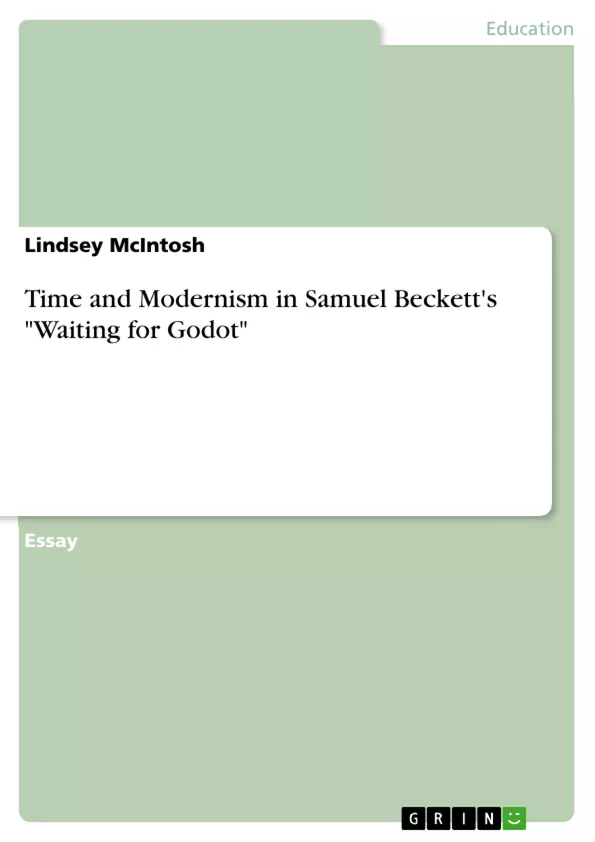At the turn of the 20th century, a crisis in Enlightenment humanism had began to emerge; from the ashes of a dying romantic era, a cultural revolution known as the modernist movement arose as ‘a progressive force promising to liberate humankind from ignorance and irrationality’ (Taket and White, p. 869).
Weary from the weak, unchanging patterns of Victorian writing, a collection of writers sought to break away from pre-existing ‘dead-end’ methods of creating literature by exploring new styles which were expressed in their prose and poetic works.
Placing a greater emphasis upon experimentation, modernist writers took a great interest in purposely disorientating their readership with fragmentation and elements of the absurd. A conscious experimentation with language to express both its powers and limitations became apparent components in a vast body of modern literature.
Whilst the previous era embodied a strong connection to nature in the belief this relationship was crucial for man’s development as an individual, modern writers displayed little interest towards the natural world. Instead, an established vein of modern thought developed that progress as an individual was dependent upon directing the eye inward.
Inhaltsverzeichnis (Table of Contents)
- Time and the Modernist Writer
- Samuel Beckett's Waiting for Godot
- Bergson's Theory of Time
- Time as a Metaphysical Issue
- The Theme of Waiting
- Time and Duration
- The Importance of Memory
- Time's Impact on the Characters
Zielsetzung und Themenschwerpunkte (Objectives and Key Themes)
This analysis aims to explore the significance of time as a central theme in modernist literature, focusing on Samuel Beckett's Waiting for Godot. It examines how Beckett's portrayal of time aligns with the philosophies of Henri Bergson, particularly his concepts of duration and memory.
- Modernist conceptions of time
- Bergson's philosophical ideas about time
- The role of memory in the construction of time
- The disintegration of linear time in Waiting for Godot
- The impact of time on the characters' perceptions and experiences
Zusammenfassung der Kapitel (Chapter Summaries)
- Time and the Modernist Writer: This chapter introduces the context of modernism, highlighting the shift from traditional Victorian writing styles to experimental forms. It explores how modernist writers, disillusioned with the dominant Enlightenment worldview, challenged established notions of time and reality.
- Samuel Beckett's Waiting for Godot: This chapter delves into Beckett's play Waiting for Godot, discussing its minimalist style, absurdist elements, and the central theme of waiting. It examines how the play blurs the boundaries between modernism and postmodernism.
- Bergson's Theory of Time: This chapter introduces Henri Bergson's philosophical ideas on time, emphasizing his rejection of linear, Newtonian concepts. Bergson's notion of duration, a subjective experience of time, is contrasted with the objective, scientific understanding.
- Time as a Metaphysical Issue: This chapter elaborates on Bergson's critique of the scientific rationalization of time, highlighting his view of time as a metaphysical issue. It examines how Bergson's theories challenge the traditional understanding of time as a succession of moments.
- The Theme of Waiting: This chapter explores the theme of waiting in Waiting for Godot, showing how time is presented as a force that propels the play forward. It examines how Beckett uses time to explore existential themes of absurdity and the human condition.
- Time and Duration: This chapter examines how Beckett's play incorporates Bergson's concepts of duration, particularly the struggle to separate present states from past ones. It explores how memory, as a manifestation of duration, plays a significant role in shaping the characters' experiences of time.
- The Importance of Memory: This chapter explores the significance of memory in Waiting for Godot, highlighting how the characters' faulty recollection of the past contributes to their sense of disorientation and the play's seemingly arrested development. It discusses how the inability to recall the past may be linked to the characters' unstable identities.
- Time's Impact on the Characters: This chapter examines how time, rather than providing stability, erodes the characters' experiences in the play. It explores how Beckett uses time to create a sense of chaos and disorientation, ultimately contributing to the play's existential themes.
Schlüsselwörter (Keywords)
This analysis focuses on the intersection of modernist literature, philosophy of time, and dramatic representation. Key concepts include modernist aesthetics, time as a subjective experience, Bergson's theory of duration, memory, and the fragmented nature of time in Samuel Beckett's Waiting for Godot.
- Quote paper
- Lindsey McIntosh (Author), 2013, Time and Modernism in Samuel Beckett's "Waiting for Godot", Munich, GRIN Verlag, https://www.grin.com/document/358717



